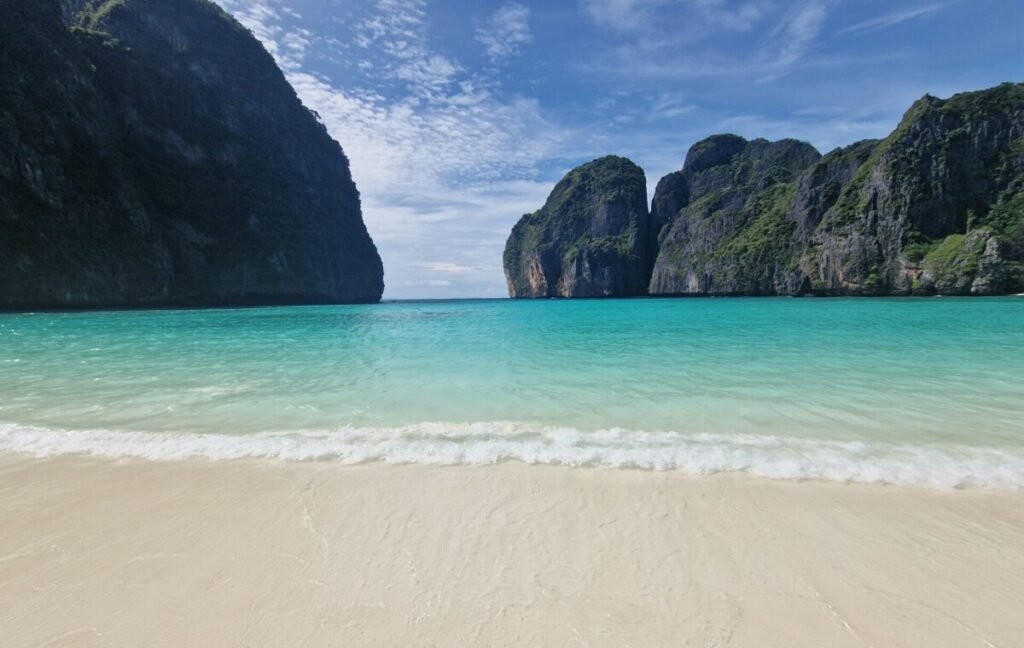
Thailand Immigration rule changes
Thailand Immigration Rule Changes 2025 – Important Information for Visa Runs and Exemption Extension
Thailand is tightening its border rules, as Thailand’s Immigration Bureau has made big changes to visa regulations. They are now enforcing the new limits set by the Thailand immigration Rule changes on visa runs and demanding that long-term visitors apply for the appropriate non-immigrant visas.
The government are now making sure that everyone needs to have legitimate reasons to stay in the country long term. They want to be clear that these rule changes aren’t there to stop tourism, but to keep the borders secure, curb any illegal activities, and make sure that anyone staying long-term is actually doing something helpful for the Thai economy.

Heya, My name’s Ethan, I was born and raised in the USA where I got my degree in Anthropology. Since leaving education I have been traveling the world on my “extended gap year” where I am still traveling nearly a decade later! I don’t have a favorite destination as I believe that every country has something unique to offer but my personal favourite continent has got to be Asia!
Affiliate Disclosure: Some of the links on our site are affiliate links, meaning, at no additional cost to you, we may earn a commission if you click through and make a purchase. This helps us to continue providing valuable content and supports our efforts in bringing the travel community together. We only recommend products and services we believe in and think you’ll find useful. Complete details are included in our affiliate disclaimer. Thank you for your support!
In a Hurry? Here's our Key Info for This Article
- Visa runs are now limited to a maximum of two consecutive entries before requiring a proper visa.
- Stricter oversight on extensions targets repeated short-term stays and renewals without legitimate cause.
- Entry denials are increasing due to suspected misuse of visa exemptions and privileges.
- Criminal exploitation of visas is being cracked down on, especially near border areas.
- Flagged or deported foreigners are now permanently barred from re-entering Thailand.
- Long-term visa options (Retirement, Elite, Business) are the encouraged alternative to short-stay renewals.
Stay Connected
Things to Do
Essential Apps
Surfshark VPN
Stay safe online and continue accessing all your services just like back home.
Budget Tips
Two Visa Runs Now the Maximum
In Thailand currently, Immigration rules have changed with a clampdown on the “visa run.” This is to reform and limit visa runs, where travelers exit and re-enter the country to reset their stay period. Immigration officers now have the power to simply say “no” if you try to leave the country and come back in more than twice in a row without a proper long-term visa.
This is a huge shift because for years, expats and digital nomads spent a lot of time in Thailand by going to the border of Laos or Malaysia every few months to reset their tourist stamp. This has now changed and if you’re frequently crossing borders, especially at popular borders like Mae Sai you’ll need a legitimate reason. Getting a proper long term visa has never been more important.
Immigration Targets Criminal Exploitation of Visa Loopholes
The Immigration Bureau is now checking throughout the country for foreign criminals that have been abusing the visa rules for illegal scams, money laundering and running illegal businesses without the correct permits and visas. Places near the border, like Mae Sot, are especially difficult to get through since they’ve become the most common areas for scam operations.
If you’ve been deported before or are on any kind of watchlist for having the wrong visa or too many stamps, you risk being permanently banned from re-entering Thailand.


Stricter Oversight on Visa Extensions
It’s not just the borders; even getting an extention now is difficult. Renewing a short stay or too many Thai stamps will put you at risk for not being granted an extention. They are targeting places with lots of expats, like Phuket and Chiang Mai, where “visa agencies” often helped questionable extensions for individuals attempting to bypass the formalities.
Balancing Security with Tourism Growth
Thailand is still determined to grow their tourism, but now their focus is just on accepting travelers who respect the rules and want to see the country. The Thai government are now adding more staff at big airports like Suvarnabhumi and Phuket, which also means quicker passport checks. It’s all about making sure Thailand remains a welcoming place while keeping boundaries. You might want to consider grabbing some travel insurance before you fly, as some premiums might help in emergency situations.
Visa Options for Longer Stays in Thailand
Since this has come into effect, the best thing to do is to get a the correct visa. Luckily, there are several legal pathways that are availablefor retirees, professionals, families and investors who want to live in Thailand for longer periods of time. Here are some of those options.
- Family/Marriage Visa (Non-O): For those married to a Thai person or supporting dependents; renewable every year.
- Retirement Visa (Non-O-A / O-X): For those 50+; requires showing proof of funds (usually 800k THB in the bank). The O-X can last up to 10 years!
- Education Visa (ED): Perfect if you’re studying Thai or enrolled in a university; stays valid as long as your course is.
- Business Visa (Non-B): The required visa for professionals, entrepreneurs, or anyone working; requires a Thai company sponsor and a work permit.
- Thailand Elite Visa: This is a premium visa offering 5 to 20 years of residency.
- Smart Visa: A special visa for investors, skilled workers, and startup founders in specific high-tech fields; grants long stays (up to 4 years) with no work permit needed.
Preparing for a New Era of Immigration Compliance
If you are wanting to live in Thailand for a longer period, you will need to check the Thailand Immigration rule changes regularly and make absolutely sure that the visa you have actually matches the reason you’re in the country. Digital nomads, retirees, and frequent visitors will need to reassess their arrangements to comply with these new rules. Applying for these visa’s will not only make you compliant with Thai laws but it will also be beneficial, as this also results in health care, business rights and employment opportunities.
Conclusion
The takeaway here is that the Thailand Immigration rule changes are a serious policy reset that changes the way we travel Thailand. Compliance is key with these new regulations and if you want to stay in Thailand for longer, then you will need to apply for the correct visa.
These changes are unlikely to impact those that vacation in the Kingdom but are more aimed to reduce the amount of people abusing the visa exemption system. These new rules do still allow for a good period of time in the country but alway double check before you book and ensure you’re within the limits.
Thailand Immigration Rule Changes FAQ
The Immigration Bureau is now empowered to deny entry to travelers attempting more than two consecutive tourist entries (via visa exemption or tourist visa) without obtaining an appropriate long-term visa in between.
es, but extension applications are being scrutinized much more closely, especially for individuals showing a pattern of repeated short-term stays or those who rely on extension agencies without legitimate cause. While traveling South East Asia, you might also want to look into the Bali visa requirements, so you don’t run into any issues on your travels to another country.
The changes are intended to preserve border integrity, curb illegal activities like cyber scams and money laundering, and ensure that long-term residents are using the appropriate visa classification.
Authorities can deny entry at the border (with around 2,900 refusals cited in 2025) and are now immediately barring foreigners previously flagged or deported for criminal exploitation of visa loopholes. If feeling overwhelmed with your travel plans going wrong, check out our article and advice on how to remain calm in these situations.
Visitors who wish to stay long-term must apply for a non-tourist visa, such as the Retirement Visa (Non-Immigrant O-A/O-X), Business Visa (Non-Immigrant B), Education Visa (ED), or the premium Thailand Elite Visa.













